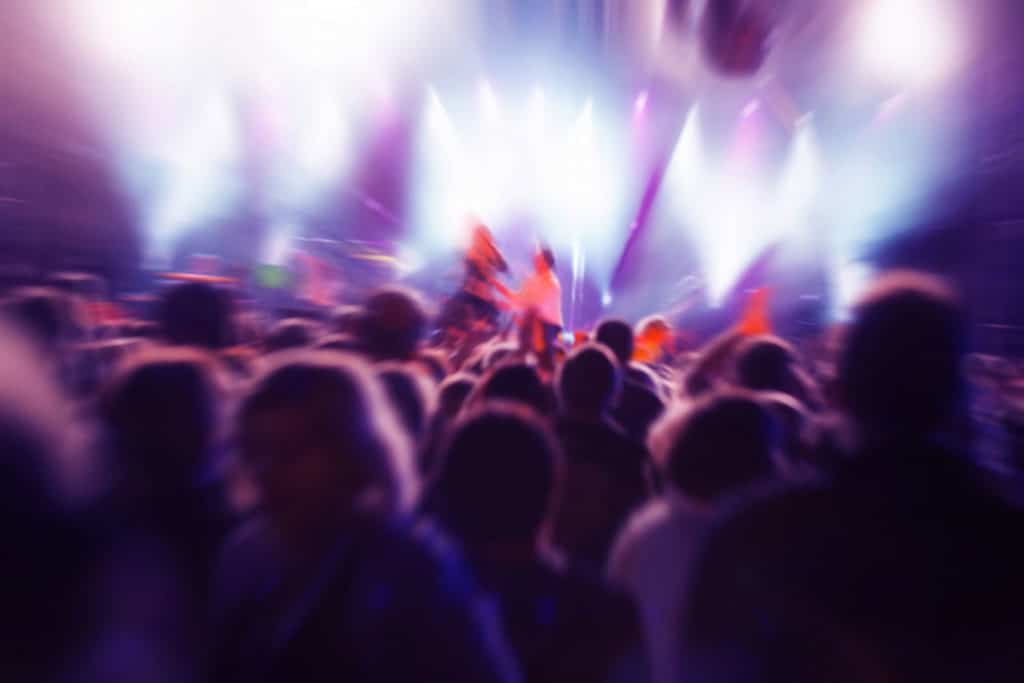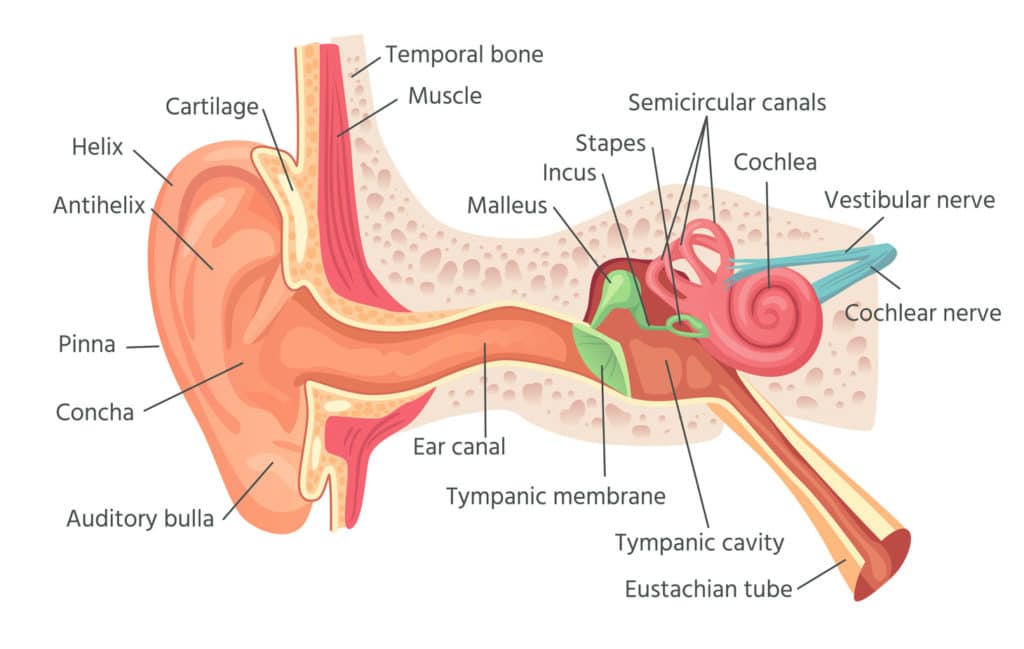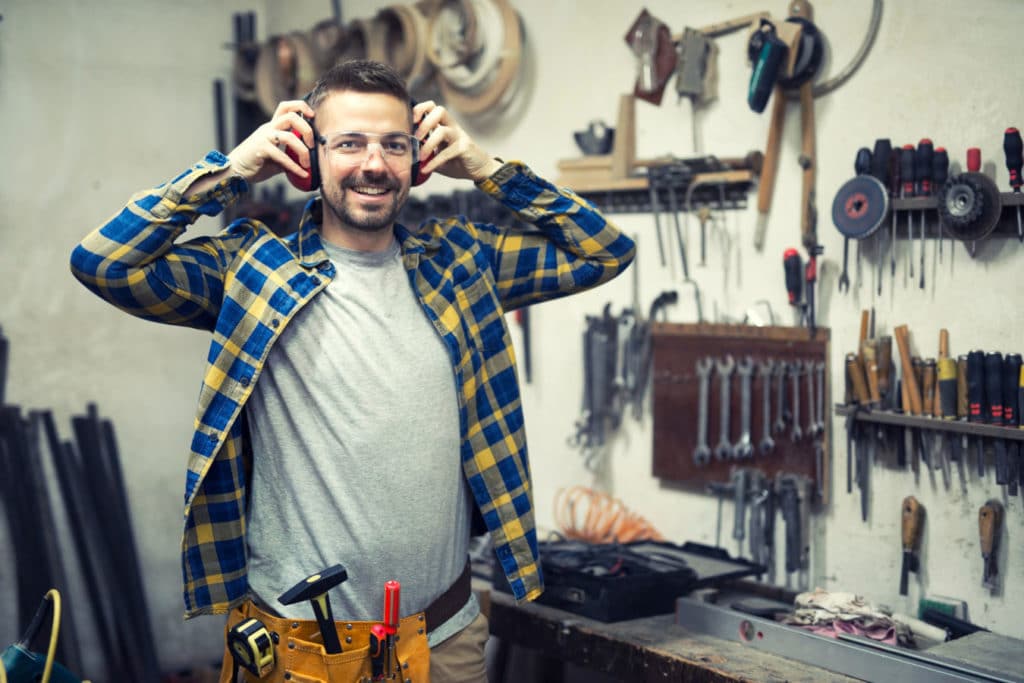
This is known as Temporary Threshold Shift (TTS), which indicates temporary hearing loss or tinnitus. And although the effects are short-lived, they are indications of damage, and repeated occurrences of TTS could lead to permanent issues with your hearing.
What’s going on inside your ear?
It predominantly affects your ear cells when exposed to loud noise from a concert, sporting event, or even listening to your headphones too loud. To understand why that’s a big deal, we must first understand (the basic concept) of how hearing works.
In brief, sound waves enter and travel through the ear, stimulating fluid in the cochlea (inner ear). The fluid then creates waves over rows of tiny hair cells, each tonotopically organized–or tuned to a precise frequency for optimal delivery of the sounds you hear.

Damaged ear cells
Blaring sounds pounding your ears, pushing over those cells send sound, is a traumatic experience. Even after no sound, they remain bent over, causing ringing, fullness, and temporary loss of hearing.
TTS affects the higher frequencies, which produce consonant sounds essential to conveying a word’s meaning. Without hearing consonants correctly, it can make it difficult to distinguish between words like fat and bat. This is what allows you to hear someone but not correctly understand them.
But with TTS, the good news is that your hearing levels will return to your baseline after a short time. You are allowing your “threshold” to return to normal.
What causes TTS?
The simple answer, loud sounds cause TTS. Standing too close to a speaker at a concert, Loud machinery, Sporting events, and other loud noise-producing events can cause TTS. A concert speaker can reach levels up to 110 decibels; that’s the equivalent of standing next to someone playing the trombone directly into your ear.
Generally, sound over 85dB can lead to noise-induced hearing loss (NIHL), according to the American Speech-Language-Hearing Association(ASHA). TTS parallels noise-induced hearing loss but with shorter effects.

Because TTS is a temporary effect, it might last a few hours, days, or even weeks. The longer you’ve been exposed, and the more intense the noise, the longer-lasting the TTS can be. Although, there can be outside factors that play a role in the length of TTS. Factors such as age and sex, former noise exposure history, diseases such as diabetes are all factored into how long it takes for your hearing to return to baseline.

Preventing TTS
Loud noise causes TTS, so by that knowledge avoiding exposure to harsh sounds will Prevent TTS. On the forefront, that may seem very easy. Still, it can be difficult in a real-world application, where you might find yourself unexpectedly exposed to loud equipment, sirens, or alarms, or watching a movie in the theaters where sounds can reach between 74 and 104dB, according to ASHA. (The lower range is not as harmful, but the upper-range can cause damage)
Being mindful of loud events and environments and making small changes play a prominent role. If you’re headed to an event like a sports game, or concert, standing further away from the speakers will help exponentially. Taking breaks like stepping outside of the concert hall to give your ears a break so that they are not continually being blasted are just a few ways to be mindful of your surroundings
Don’t forget about PPE
Yes, distancing and removing yourself periodically during a loud event will help prevent TTS. However, wearing personal protective equipment (PPE) gives you a layer of safety when it comes to sounds you don’t need to hear-lawnmower, power tools, etc.
Choosing options that will cancel out all noise are your best bet. Choosing earplugs with the highest level of noise reduction rating (NRR) are ideal. But if you’re going to a show or concert where you want to hear certain sounds but block out harsh ones, opting for a pair of earplugs designed for musicians may be a good option for you. These types of earplugs dissipate the sound but do not diminish the music
When to seek medical treatment
If you are experiencing signs or symptoms of TTS after exposure to loud noise, give it some time for the effects to subside. If the problem persists longer than a few weeks, make sure to reach out and give Salem Audiology Clinic a call. 971.701.6322 and schedule an appointment with one of our highly trained professional Audiologists.
Works Cited: Healthy Hearing – What is temporary Threshold Shift
